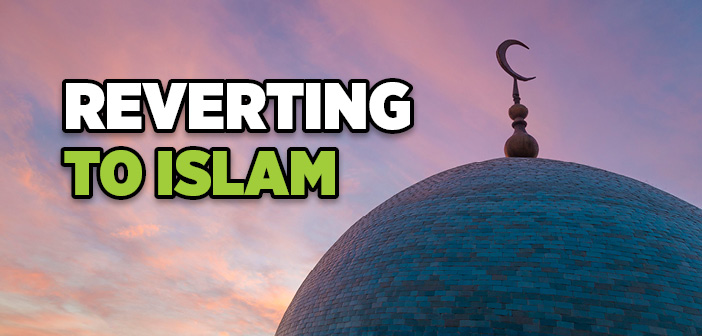Definition of Allah
Allah is an Arabic term, which means the One God. By definition every Muslim believes in Allah, who is known to be the Creator and the Sustainer of all things that exist. Islam holds that Allah transcends the possession of any physical attributes, nor is He bound by any of the limitations of human beings or of anything else. He has no parents, no children, no associates and no partners. God is, however, described by His “ninety nine names”, such as, the Creator, the Sustainer, the Merciful, the Light and the Forgiver and so on. Allah, may He be glorified and exalted, says in the Qur’an, “And dispute ye not with the People of the Book, except with means better (than mere disputation), unless it be with those of them who inflict wrong (and injury): but say, ‘We believe in the revelation which has come down to us and in that which came down to you; Our God and your God is one; and it is to Him we bow (in Islam).’”[1] For Muslims, Qur’an is the word of God and in it He repudiates many of the notions about Himself found in other religions. He speaks of Himself as the One, the Unique, the Absolute, the Infinite, the Origin and the End of all things; He is the Creator and the Sustainer; He is the Giver of life and death; thus, all things return to Him. Islam categorically declares God to be far beyond possessing any of the creaturely attributes which may be ascribed to Him nor does Islam consider Him to be bound by any of the limitations of human beings or anything else He has created. Thus, God is One as is stated it in the Qur’an, “Say, He is God, the One, God the Eternal. He begot no one nor was He begotten. No one is comparable to Him”.[2]
In Quran
In the Qur’an the core experience of Islam is described as comprehending the unity of God (tawḥīd), where His oneness and His uniqueness are highlighted. It is in the first pillar of Islam that one finds the main belief in Allah; that is the shahāda, which is testifying that, ‘There is no god (divinity) but God and Muhammad is His messenger.’ The first part of the shahāda and the first article of faith (to believe in One God) are inextricably linked to each other. To believe in Allah, may He be glorified and exalted, as it is stated in the first article of faith, means to negate any other deity and affirm the belief in the oneness and uniqueness of God. This declaration first removes the notion that anything in creation is worthy of being worshipped and then stresses the existence of God, Who is the only One Who deserves to be worshipped.
The Ninety-Nine Beautiful Names of Allah, may He be glorified and exalted, should be understood simultaneously. In other words, no one single attribute can be understood separately; all ninety-nine attributes holistically explain the nature of God. God is not just the Most Merciful, the Loving, the Giver of life and the Forgiving; He is also the Just, the Distresser, the Giver of death and the Avenger. It is clear that these names could easily belong to two distinct categories; one is warm and embracing whilst the other one seems to instill a sense of awe and fear. Yusuf Ali, the celebrated exegete and translator of the Qur’an, explained that the ninety-nine names merge into each other just like the night merges into the day. He wrote, “To some it may appear strange or even irreconcilable that God should be both Merciful and Just; that He should both protect His devotees and yet ask for their self-sacrifice; that he should command them to return good for evil, and yet permit retaliation under certain restrictions. But such thoughts are short-sighted. Do they not see many inconsistencies in all life, all nature, and all creation? Why, even in such simple phenomena as night and day, the one merges into the other, and no one can tell when precisely the one begins and the other ends. Yet we can see in a rough sort of way that the one gives rest and the other activity, that the one reveals the beauties of the starry heavens and the other the splendor of the sun. In countless ways, we can see there the wisdom and the fine artistry of God. And there are subtle nuances and merging in nature that our intelligence can hardly penetrate”.[3]
As mentioned earlier, God in Islam is described in both the Qur’an and Hadith by the utilization of the ninety-nine names, such as, the Most Merciful, the Living, the Guide, the Holy, the Self-subsisting, the Wise, the Sovereign King and the Light. In the Qur’an Muslims are asked to use these names to call upon Him. Allah, may He be glorified and exalted, says, “The most beautiful names belong to Allah: so call on him by them.”[4] These names are also referred to as the attributes of God. These attributes are however understood in an absolute sense, free from human deficiencies and they are understood as being harmonious with the notion of an all-powerful God.[5]
[1]Q. 24:46.[2]. Q. 112:1–4.[3]. Q. 7:180, footnote no. 2841.[4]. Q. 7:180.[5]. For further detailed study on the subject of God please see Amjad M. Hussain, The Muslim Creed: A Contemporary Study of Theology, Cambridge: Islamic Text Society, 2016, pp. 43-83.
Source: Islam For New Muslims An Educational Guide,Assoc. Prof. Amjad M. Hussain, Erkam Publications





